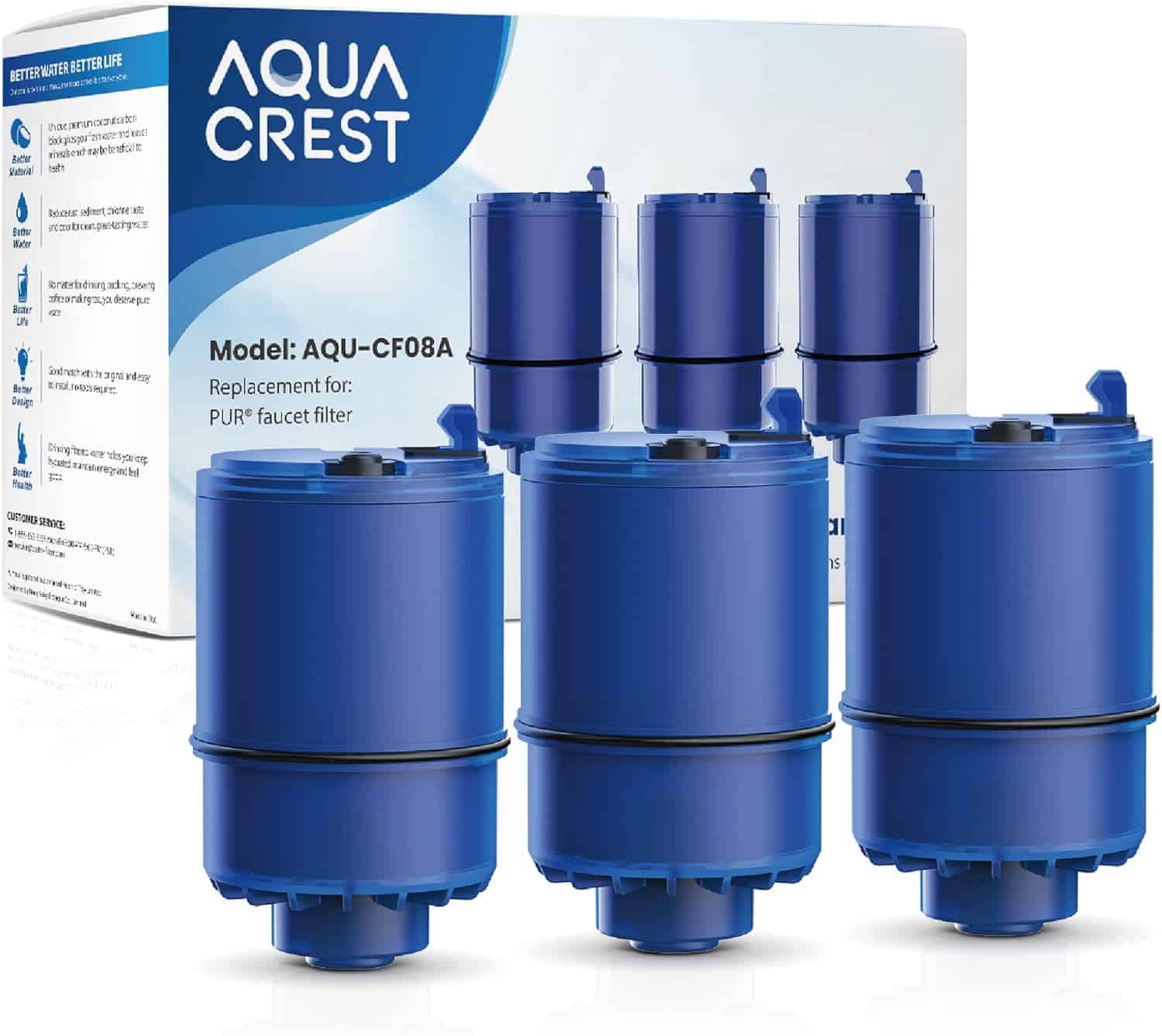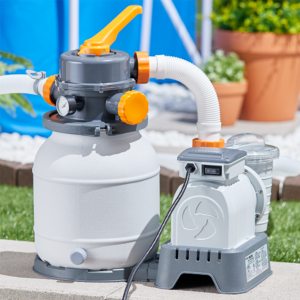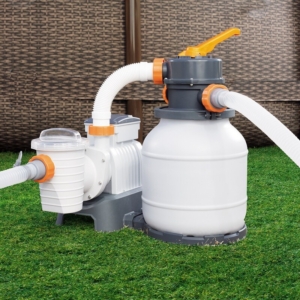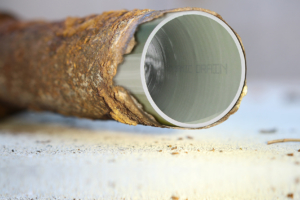Best Brand of Heat Pumps That Make a Difference: Our Top Choices
In this guide, we’ll go over everything you need to know about heat pumps, including what they are, how they work, and what you need to consider before buying one. We’ve also included our best brand of heat pumps on the market to help you make an informed decision.
What is a heat pump?
A heat pump is an HVAC system that moves heat from one location to another. It works by extracting heat from the air or ground and transferring it to your home, providing warmth in the winter and cool air in the summer. Unlike traditional furnaces or air conditioners, heat pumps don’t generate heat themselves. Instead, they move heat from one location to another, making them more energy-efficient and cost-effective.
How do heat pumps work?
Heat pumps work by using a refrigerant to transfer heat from one location to another. During the heating season, the refrigerant absorbs heat from the air or ground outside and moves it inside to warm your home. In the summer, the process is reversed, and the refrigerant absorbs heat from inside your home and moves it outside to cool your home. This process is known as the refrigeration cycle and makes heat pumps energy-efficient.
How to maintain a heat Pump
To ensure your heat pump is running efficiently and reliably, it’s important to perform regular maintenance. This includes changing or cleaning the air filters every 1-3 months, cleaning the outdoor unit of debris, and scheduling annual professional maintenance to check the refrigerant levels, electrical connections, and overall performance.
How to purchase a Heat Pump
When purchasing a heat pump, there are a few key factors to consider. These include the size of your home, your climate, your budget, and the efficiency rating of the heat pump. It’s important to choose a heat pump that’s the right size for your home to ensure it can effectively heat and cool your space. You’ll also want to choose a heat pump with a high efficiency rating, which will help you save money on your energy bills over time.
How to protect your Heat Pump
To protect your heat pump, it’s important to keep the outdoor unit clear of debris, such as leaves or grass clippings, which can restrict airflow and cause the system to work harder than it needs to. You’ll also want to make sure the unit is installed on a level surface to prevent damage to the compressor. It’s also a good idea to invest in a protective cover to shield the unit from harsh weather conditions and debris.
Our top 10 picks for the best heat pumps
- Carrier Infinity 20 Heat Pump
- Trane XV20i Variable Speed Heat Pump
- Lennox XP25 Heat Pump
- Rheem Prestige Heat Pump
- Goodman DSZC18 Heat Pump
- Amana AVZC20 Heat Pump
- Bryant Evolution Extreme Heat Pump
- York Affinity YZV Heat Pump
- American Standard Platinum Heat Pump
- Heil QuietComfort Deluxe Heat Pump
These heat pumps are some of the best on the market, offering high efficiency ratings, advanced features, and reliable performance. When choosing a heat pump, be sure to consider your home’s specific needs and consult with a professional to ensure you’re making the best decision for your space.
Here are some advantages and disadvantages of the best heat pumps:
Heat Pump Advantages:
- Energy efficiency: Heat pumps are very efficient, as they don’t generate heat themselves but rather move heat from one location to another, making them an eco-friendly and cost-effective option for heating and cooling.
- Versatility: Heat pumps can both heat and cool your home, providing year-round comfort with just one system.
- Durability: Heat pumps are built to last, with a lifespan of up to 20 years if properly maintained.
- Comfort: Heat pumps provide consistent, even heating and cooling, without the temperature fluctuations that can occur with traditional heating and cooling systems.
- Improved air quality: Heat pumps filter the air as they circulate it, removing dust, allergens, and other pollutants.
Heat Pump Disadvantages:
- Upfront cost: Heat pumps can be more expensive to purchase and install than traditional heating and cooling systems, especially for larger homes or older homes that may require additional retrofitting.
- Climate-dependent performance: Heat pumps are not as effective in extremely cold climates, as they rely on the temperature differential between the inside and outside of your home to operate.
- Noise: Heat pumps can make noise when they’re running, especially older models.
- Maintenance requirements: Heat pumps require regular maintenance, including filter changes, cleaning of outdoor units, and annual professional tune-ups.
- Electricity dependency: Heat pumps rely on electricity to operate, which can be a disadvantage in areas with frequent power outages or high electricity costs.
What is the longest lasting heat pump brand?
he longevity of a heat pump brand can depend on a variety of factors, including the quality of the manufacturing, the installation and maintenance of the system, and the climate in which it is used. With proper installation and maintenance, most heat pumps can last up to 15-20 years. However, some brands are known for their durability and longevity. Here are a few brands that are often considered to be among the longest lasting heat pump brands:
- Trane: Trane is a well-known brand in the HVAC industry, and their heat pumps are known for their durability and reliability. They use high-quality materials and rigorous testing to ensure that their products can withstand extreme weather conditions and provide consistent performance for many years.
- Carrier: Carrier is another well-known brand that produces high-quality heat pumps. Their products are designed to be energy-efficient and long-lasting, with a focus on durability and performance.
- Lennox: Lennox is known for their high-end heat pumps, which are designed to be both energy-efficient and long-lasting. They use innovative technology and high-quality materials to ensure that their products can stand up to the rigors of everyday use.
- Rheem: Rheem is a popular brand that produces a range of heating and cooling products, including heat pumps. Their products are known for their durability and efficiency, with a focus on providing reliable performance for many years.
- Fujitsu: Fujitsu is a brand that produces high-quality ductless mini-split heat pumps. Their products are known for their energy efficiency and longevity, with a focus on quiet operation and innovative features.
Note: these brands are known for their longevity, the actual lifespan of a heat pump can vary depending on a variety of factors. Proper installation and regular maintenance are crucial to ensuring that your heat pump lasts as long as possible.
How much do heat pumps costs?
he cost of a heat pump can vary depending on a variety of factors, including the brand, size, efficiency, and features of the system, as well as the cost of installation. Here is a general breakdown of the cost ranges for heat pumps:
- Air-Source Heat Pumps: Air-source heat pumps are the most common type of heat pump and typically cost between $3,000 and $8,000 for the system itself, depending on the size and efficiency rating. Installation costs can range from $1,500 to $4,500, depending on the complexity of the installation.
- Ductless Mini-Split Heat Pumps: Ductless mini-split heat pumps are often used in homes without existing ductwork and typically cost between $1,500 and $4,000 per indoor unit, depending on the size and efficiency rating. Installation costs can range from $1,500 to $3,500 per indoor unit, depending on the complexity of the installation.
- Geothermal Heat Pumps: Geothermal heat pumps are the most expensive type of heat pump, with prices ranging from $10,000 to $25,000 for the system itself, depending on the size and efficiency rating. Installation costs can range from $10,000 to $30,000, depending on the complexity of the installation.
Places Where Can Heat Pumps Be Installed
Here are some common locations for heat pump systems:
- Indoor: Heat pump systems can be installed indoors, usually in a utility closet or basement. Indoor installations are common for air-source heat pumps and ductless mini-split heat pumps, as they do not require any external components.
- Outdoor: Outdoor installations are common for air-source heat pumps, which require an outdoor unit that houses the compressor and fan. The outdoor unit is typically placed on a concrete slab or mounted on a wall bracket, and connected to the indoor unit by refrigerant lines.
- Attic: In some cases, a heat pump system can be installed in the attic, particularly for ducted systems. This can be a good option for homes with limited space for outdoor units, but it can also present some challenges in terms of accessibility and maintenance.
- Ground: Ground-source heat pumps, also known as geothermal heat pumps, require installation of underground loops in the ground around your home. These loops are connected to the indoor unit and use the stable temperature of the ground to provide heating and cooling.
- Roof: In some cases, a heat pump system can be installed on the roof of a building. This is a common installation method for commercial buildings with limited space for outdoor units, but it can also be used for residential applications.
We typically find issues with the systems not being vented or draining properly
Here are some general tips for properly venting heat pumps for each installation type:
- Air-Source Heat Pumps (Outdoor Installation):
- Ensure the outdoor unit is installed on a flat, stable surface to prevent vibrations and noise.
- Maintain at least two feet of clearance around the outdoor unit to ensure proper airflow.
- Ensure that the outdoor unit is level to prevent oil and refrigerant leaks.
- Install a protective cage around the outdoor unit to prevent damage from falling debris or animals.
- Install a weatherproof cover to protect the outdoor unit from rain, snow, and other weather elements.
- Air-Source Heat Pumps (Indoor Installation):
- Ensure the indoor unit is installed in a well-ventilated area with adequate space for airflow.
- Ensure that the indoor unit is level to prevent water leaks and maintain proper airflow.
- Ensure that the indoor unit is installed in a location that is easily accessible for maintenance and repairs.
- Install a drain line for the indoor unit to prevent water buildup and overflow.
- Install a dedicated circuit for the indoor unit to prevent electrical issues.
- Ductless Mini-Split Heat Pumps:
- Install the indoor unit at a height of at least seven feet to ensure proper airflow and prevent drafts.
- Ensure that the indoor unit is level to prevent water leaks and maintain proper airflow.
- Install the outdoor unit on a flat, stable surface with adequate clearance for proper airflow.
- Install a weatherproof cover for the outdoor unit to protect it from weather elements.
- Install a drain line for the indoor unit to prevent water buildup and overflow.
- Ground-Source Heat Pumps (Geothermal):
- Ensure that the ground loops are properly installed and buried to prevent damage and maintain proper heat exchange.
- Install a water treatment system to prevent mineral buildup in the ground loops.
- Install an air vent and bleed valve to release trapped air from the ground loops.
- Install a flow meter and pressure gauges to monitor the flow and pressure of the ground loops.
- Install a backup heating system to provide heat in case of system failure.
Proper venting of a heat pump system is critical. Seek a local professional for assistance and reference your local building codes for proper installations.
It’s important to keep in mind that while heat pumps may have higher upfront costs than traditional heating and cooling systems, they can provide significant energy savings over the lifetime of the system.
Additionally, many states and utility companies offer rebates or other incentives for installing energy-efficient heat pumps, which can help offset the cost of installation. It’s always a good idea to consult with a professional HVAC contractor to get a more accurate estimate of the cost of a heat pump for your specific needs and location.
In conclusion, purchasing a heat pump is an excellent way to keep your home comfortable year-round while also saving money on your energy bills. By following these tips and recommendations, you can make an informed decision and choose the best heat
I hope this has been helpful as a guide. We recommend you seek a local agent to provide specific qoutes for their companies insurance policies. If you have additional questions and want to get in contact with GGR Home Inspections please send us a note, text, or call.






Pingback: Goodman AC Age - They Last 10-15 Years - GGR Home Inspections